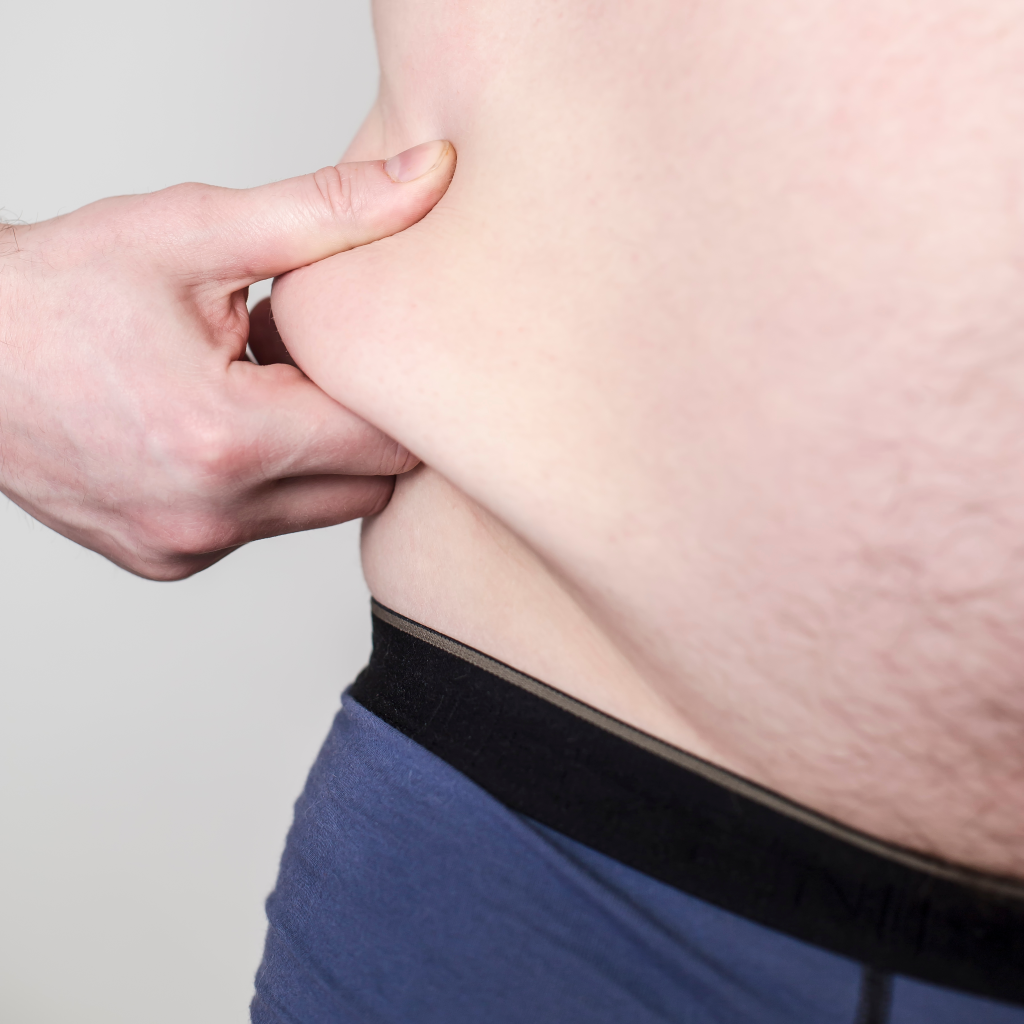Sleeve Revision
Conveniently located to serve the areas of Houston and Katy

A sleeve revision is a surgery that converts an existing sleeve into either a gastric bypass, duodenal switch or even a re-sleeve. Revision surgery may be necessary for patients who have experienced poor weight loss outcomes with a sleeve or developed bothersome symptoms post initial surgery such as acid reflux or dysphagia. In circumstances when a re-sleeve procedure has been ruled out, there are two additional alternative step-up surgical pathways. The aim of both is to add a metabolic component to the existing restrictive procedure.
Sleeve gastrectomy is the most popular bariatric surgery in North America. (1) And, though it is an effective surgical weight loss tool for many men and women who have obesity, the sleeve doesn’t work well for everyone. Medical literature shows a long-term failure rate for sleeves in the United States alone. (2) If a sleeve has been unsuccessful for you, arrange a personal consultation with Dr. Ricardo Bonnor M.D., FACS, FASMBS by calling (281) 579-5638 to discuss the alternatives available to you.
Contents
Sleeve Gastrectomy for Weight Loss
How is Sleeve Gastrectomy Performed?
Sleeve gastrectomy is performed via minimally-invasive surgery. The surgeon removes a large portion of the stomach and creates a narrower passage through the gastrointestinal tract. After stomach resection, there is a far smaller space for food. Following successful sleeve surgery, patient food intake is adequately restricted, and safe, controlled weight loss occurs provided adequate nutritional intake and exercise.
Sleeve Gastrectomy Failure
Circumstances that contribute to sleeve failure are usually multifaceted. Causes may be physiological, habitual, or a combinaiton of multiple factors. Some common reasons for sleeve revision include
- Poor adherence to post-operative dietary guidance
- Inadequate adherence to post-operative exercise guidance
- Enlargement or stretching of the proximal portion of the sleeve pouch.
- Development of a hiatal hernia leading to dysphagia (difficulty eating) or acid reflux
Sleeve Revision
In some cases where the sleeve has become enlarged, Dr. Bonnor can perform a robotic re-sleeve procedure, during which the stretched structure is revised or re-calibrated to recreate a smaller sleeve. However, it is important to note that this may not be a feasible or adequate course of action for some patients.
Revision to Gastric Bypass
Some patients may require a sleeve revision to a gastric bypass. Like the sleeve, it is performed robotically or laparoscopically. Not only is a revision to gastric bypass employed to reduce eating capacity and calorie absorption, it is also a common revision surgery for patients with dysphagia (difficulty swallowing) and Gastrointestinal Esophageal Reflux Disease (GERD). (3) This procedure adjusts the existing sleeve to an even smaller stomach pouch and changes the anatomy of the digestive tract. Unlike the sleeve, this technique bypasses the duodenum, connecting the stomach pouch directly to the next stage of the small intestine, the jejunum. Studies show that this conversion surgery is a safe and effective measure to improve weight loss outcomes. (4) Additional research into sleeve-to-bypass revision has found that, as well as providing additional weight loss, comorbidities such as GERD and diabetes also improve. (5)
Revision to Duodenal Switch
Also known as biliopancreatic diversion with duodenal switch, a duodenal switch is another sleeve revision surgery. Essentially, this procedure further restricts eating capacity and malabsorption by rerouting the small intestine. A sleeve procedure is actually the first stage of a duodenal switch. Part of the small intestine is divided in a duodenal switch in such a way that food empties directly into the ileum, bypassing roughly ⅔ of the small intestine. In doing so, the patient’s body absorbs fewer calories and nutrients. Duodenal switch surgery results in hormonal changes that increase satiety, and can also play a role in controlling blood sugar levels for diabetes. As well as providing the highest average expected weight loss achievable among bariatric procedures, the duodenal switch offers the most probable chance of curing diabetes (up to 95%). (6)
Benefits of Revision Sleeve
If a primary sleeve has failed to produce desired weight loss, a revision sleeve procedure may be the only course of action. Dr. Bonnor evaluates each patient on a case-by-case basis and with the patient selects a conversion procedure that best fits each individual’s circumstance. A revision sleeve procedure can
- Help patients lose regained weight after sleeve failure.
- Further restrict food intake and increases satiety
- Address comorbidities such as GERD and diabetes effectively
- Overcome weight loss plateau, or inadequate weight loss rate
- Eliminate technical complications from a primary sleeve treatment
Candidates for Revision Sleeve Surgery
Candidates for a revision sleeve are no longer experiencing the desired results from their primary sleeve surgery. They may be experiencing additional comorbidities such as dysphagia and GERD, and may not achieve effective satiety from meals, leading to a plateau or increase in their weight. In circumstances where a re-sleeve procedure has been ruled out, patients should consider a revision to gastric bypass or revision to duodenal switch.
Personal Consultation in Houston
Revision sleeve surgery is a major decision, which can only be taken after a thorough review of the prior surgery, current symptoms, surgical risks, and intended outcomes. Dr. Bonnor will address these talking points at your personal consultation. Additionally, he will order testing for preoperative evaluation. Such testing may include but not limited to:
- Upper Endoscopy
- CT Scans
- Barium swallow (Esophagogram)
- Biochemical Testing
Dr. Bonnor will explain the surgeries available to you and outline the risks and benefits of each treatment pathway. Read Texas Endosurgery patients’ personal success stories by visiting our reviews page.
To schedule a consultation with Dr. Bonnor to discuss a revision sleeve procedure, schedule an appointment at Texas Endosurgery by calling (281) 579-5638.
Commonly Asked Questions
How long does a revision sleeve procedure usually take?
Revision bariatric surgeries are often more complicated than primary surgeries. Procedure length varies according to the treatment pathway chosen and the patient’s anatomy and previous surgical history. Generally, revising a sleeve to a gastric bypass usually requires two hours depending on the quality of the existing sleeve. Revision to a duodenal switch, if combined with a re-sleeve, usually demands three hours.
Can I receive an additional bariatric surgery if a revision sleeve procedure also fails?
Bariatric revision surgery can be a solution after sleeve failure, however, if the revision surgery also fails to produce adequate results, a thorough analysis of patient lifestyle is essential if a second surgery has not led to an adequate weight loss solution.
References
- Seeras, K., & Lopez, P. P. (2019, January 19). Sleeve Gastrectomy. Nih.gov; StatPearls Publishing. https://www.ncbi.nlm.nih.gov/books/NBK519035/
- M. Parikh, A. Pomp, & M. Gagner (2007). Laparoscopic conversion of failed gastric bypass to duodenal switch: technical considerations and preliminary outcomes. Surgery for Obesity and Related Diseases, 3(6), 611–618. https://doi.org/10.1016/j.soard.2007.07.010v
- Homan, J., Betzel, B., Aarts, E. O., van Laarhoven, K. J. H. M., Janssen, I. M. C., & Berends, F. J. (2015). Secondary surgery after sleeve gastrectomy: Roux-en-Y gastric bypass or biliopancreatic diversion with duodenal switch. Surgery for Obesity and Related Diseases, 11(4), 771–777. https://doi.org/10.1016/j.soard.2014.09.029
- Nevo, N., Abu-Abeid, S., Lahat, G., Klausner, J., & Eldar, S. M. (2017). Converting a Sleeve Gastrectomy to a Gastric Bypass for Weight Loss Failure—Is It Worth It? Obesity Surgery, 28(2), 364–368. https://doi.org/10.1007/s11695-017-2856-6
- Landreneau, J. P., Strong, A. T., Rodriguez, J. H., Aleassa, E. M., Aminian, A., Brethauer, S., Schauer, P. R., & Kroh, M. D. (2018). Conversion of Sleeve Gastrectomy to Roux-en-Y Gastric Bypass. Obesity Surgery, 28(12), 3843–3850. https://doi.org/10.1007/s11695-018-3435-1
- Prachand, V. N., DaVee, R. T., & Alverdy, J. C. (2006). Duodenal Switch Provides Superior Weight Loss in the Super-Obese (BMI ???50kg/m2) Compared With Gastric Bypass. Transactions of the … Meeting of the American Surgical Association, 124, 276–284. https://doi.org/10.1097/01.sla.0000239086.30518.2a






